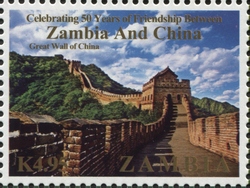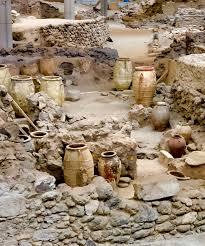Stamp: Celebrating 50 Years of Friendship between Zambia and China (Zambia 2015)
Celebrating 50 Years of Friendship between Zambia and China (Zambia 2015)
02 February (Zambia ) within release Celebrating 50 Years of Friendship between Zambia and China goes into circulation Stamp Celebrating 50 Years of Friendship between Zambia and China face value 4.95 Zambian first kwacha
| Stamp Celebrating 50 Years of Friendship between Zambia and China in catalogues | |
|---|---|
| WADP Numbering System - WNS: | WAD:ZM006.15 |
Stamp is horizontal format.
Also in the issue Celebrating 50 Years of Friendship between Zambia and China:
- Stamp - Celebrating 50 Years of Friendship between Zambia and China face value 2.50;
- Stamp - Celebrating 50 Years of Friendship between Zambia and China face value 3;
- Stamp - Celebrating 50 Years of Friendship between Zambia and China face value 3.50;
- Stamp - Celebrating 50 Years of Friendship between Zambia and China face value 3.80;
- Stamp - Celebrating 50 Years of Friendship between Zambia and China face value 4.05;
- Stamp - Celebrating 50 Years of Friendship between Zambia and China face value 4.95;
- Mini Sheet - Celebrating 50 Years of Friendship between Zambia and China face value ;
Stamp Celebrating 50 Years of Friendship between Zambia and China it reflects the thematic directions:
History (derived from Ancient Greek ἱστορία (historía) 'inquiry; knowledge acquired by investigation') is the systematic study and documentation of the human past
Classical antiquity, also known as the classical era, classical period, classical age, or simply antiquity, is the period of cultural European history between the 8th century BC and the 5th century AD. It comprises the interwoven civilizations of ancient Greece and Rome, known together as the Greco-Roman world, which played a major role in shaping the culture of the Mediterranean Basin. It is the period during which ancient Greece and Rome flourished and had major influence throughout much of Europe, North Africa, and West Asia. Classical antiquity was succeeded by the period now known as late antiquity.
Archaeology or archeology is the study of human activity through the recovery and analysis of material culture. The archaeological record consists of artifacts, architecture, biofacts or ecofacts, sites, and cultural landscapes. Archaeology can be considered both a social science and a branch of the humanities. It is usually considered an independent academic discipline, but may also be classified as part of anthropology (in North America – the four-field approach), history or geography. The discipline involves surveying, excavation, and eventually analysis of data collected, to learn more about the past. In broad scope, archaeology relies on cross-disciplinary research.
Architecture (Latin architectura, from the Greek ἀρχιτέκτων arkhitekton "architect", from ἀρχι- "chief" and τέκτων "builder") is both the process and the product of planning, designing, and constructing buildings and other physical structures. Architectural works, in the material form of buildings, are often perceived as cultural symbols and as works of art. Historical civilizations are often identified with their surviving architectural achievements.



